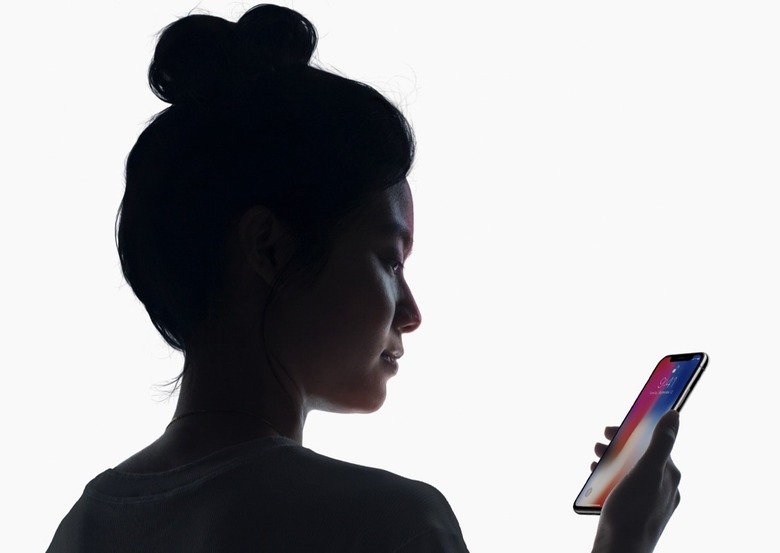Will The Coronavirus Pandemic Finally 'Kill' The iPhone's Notch?
- Face ID doesn't work on iPhone if you're using a mask, and the use of face masks is advised during the novel coronavirus pandemic.
- Apple already made changes to iOS 13 to allow iPhone users to enter passwords manually faster when using face masks.
- Could Apple consider adding Touch ID to future iPhones in case the COVID-19 disease is here to stay for longer than expected?
- Visit BGR's homepage for more stories.
The novel coronavirus altered normal life in a way we wouldn't have imagined a few months ago. The virus is very contagious and has the potential to kill anyone. Yes, many people are asymptomatic or develop mild versions of COVID-19, and it's usually the elderly or people with other existing medical problems that get a severe, potentially deadly case. But there are exceptions, and you have no way of knowing how your COVID-19 experience will be like. That's why you have to stay indoors for as long as possible, wash your hands often, and clean regularly commonly used surfaces. When you go outside, you have to wear some sort of mask. Anything that covers your mouth and nose can be used at least until you find medical masks in stores. And you should do it every time you go shopping for essentials or to work. A mask is a barrier that will not completely reduce the risk of inhaling droplets containing the virus. There's nothing that's 100% effective against it. But it can reduce the risk of contracting an infection in public places.
However, the use of a mask practically ruins one of the best features the iPhone ever got, the Face ID 3D face recognition system. And once you get hooked to it, it'll be very annoying to keep entering your password every single time you need to unlock the phone. With that in mind, I can't help but wonder whether the current pandemic will affect Apple's plans for Face ID.
COVID-19 is here to stay, and we'll only get rid of it in the coming years, in a best-case scenario where we'll have at least a vaccine to prevent the infection. That means we'll be using masks for some time to come, maybe well into 2022.
And if you're using masks while shopping for goods, or working, then you'd better make sure you use them correctly. That means the mask has to cover both the nose and mouth, and you have to avoid touching the external surface of the mask at all times. That implies not removing the mask and parking it on your chin for any purpose, unlocking the iPhone included. If you're going to do that, then you're better off without a mask.
With a mask on, Face ID won't work, and you'll need to type in your passcode. Luckily, Apple has made it a lot easier by changing the unlock screen in the latest iOS 13 beta so that you can type in the password faster than before. However, that's still a huge inconvenience when you're out and about.

I've always used a password with the iPhone, and I don't plan on ever removing the screen protection that also encrypts the handset. Touch ID made it even easier to unlock the phone, and then Face ID came. I said before that I wouldn't want to switch back to Touch ID now that I've experienced Face ID, and I won't take that back. But what happens if wearing a face mask will become the new normal for the coming years? What if something terrible happens and the vaccines don't work?
When Apple launched Face ID back in 2017, it was the most sophisticated phone unlock experience ever made. It still is, as very few smartphone makers replicated Apple's 3D face recognition system. Face ID is more secure than Touch ID and works even better once you get used to it. And it's not just for screen unlocking, as Face ID practically unlocks anything that has a password on the phone. It's super easy to use and set up.
The face mask ruins all of that. Apple's iPhone 12 models will all have smaller notches, several reports said, as Apple is looking to reduce the size of the notch. And it's likely that next year's iPhones will still come with Face ID support. But it'll be interesting to see whether the COVID-19 pandemic will force Apple to add Touch ID back to the iPhone at some point in the future. And if it'll happen, can Touch ID coexist with Face ID?
Apple did study the same under-screen fingerprint technologies that some Android handset makers have already deployed in their smartphones. Optical and ultrasound fingerprint sensors were detailed in Apple's patents longe before the iPhone X launched. In fact, we all thought the handset will have an under-screen sensor in the months before that preceded the phone's launch. And rumors do say that Apple is considering under-screen fingerprint sensors for future iPhones, maybe as soon as iPhone 12. But we're far from getting any confirmation.
Then again, Apple could figure out a way to make Face ID work when the wearer is using a face mask. But that's really wishful thinking from this particular Face ID user who's now forced to wear masks.
If anything, the COVID-19 pandemic showed that Apple is ready to adapt rapidly to what's happening with the world. Apple has been quick to close stores, it came up with its own coronavirus screening app, and it started displaying COVID-19 testing locations in Maps. On top of that, it developed face shields for medical personnel and worked with Google on a life-saving ingenuity, the COVID-19 contact tracing app. Even the new unlock screen is proof of Apple adapting to the disease. If this virus threat is here to stay for a few years, then maybe Apple will make all the necessary changes to iPhone design to make it as convenient and secure to use as it is now.
Until then, we'll just have to use passwords while wearing masks. Also, the iPhone SE is a great alternative solution to anyone looking for a new iPhone with fingerprint support.
